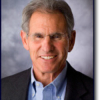Jon Kabat-Zinn

Jon Kabat-Zinn
Jon Kabat-Zinnis Professor of Medicine Emeritus and creator of the Stress Reduction Clinic and the Center for Mindfulness in Medicine, Health Care, and Society at the University of Massachusetts Medical School. Kabat-Zinn was a student of Buddhist teachers such as Thich Nhat Hanh and Zen Master Seung Sahn and a founding member of Cambridge Zen Center. His practice of yoga and studies with Buddhist teachers led him to integrate their teachings with those of science. He teaches mindfulness, which he...
NationalityAmerican
ProfessionEducator
Date of Birth5 June 1944
CountryUnited States of America
Peace is something that we can bring about if we can actually learn to wake up a bit more as individuals and a lot more as a species; if we can learn to be fully what we actually already are; to reside in the inherent potential of what is possible for us, being human.
There are certain ways in which I cultivate awareness, both through mindful yoga and taking care of my body and taking time to actually drop as deeply as possible into stillness, into whatever is unfolding in the present moment.
Meditation is really a non-doing. It is the only human endeavor I know of being where you already are.
The importance of the development of the emotional body is hardly recognized today. We are pretty much left to our own devices to come to full adulthood, whether man or woman. Our elders may have become so denatured themselves from a lack of such nurturance that there is no longer a collective knowledge of how to guide the awakening emotional vitality and authenticity of our young people, our children. Mindfulness may contribute to a reawakening of this ancient wisdom in ourselves and in others.
A lot of harm has come in all eras from people attached to one view of 'spiritual' truth.
We are continuously bombarded with information, appeals, deadlines, communications... We are continually being squeezed or projected into the future as our present moments are assaulted and consumed in the fires of endless urgency.
Mindfulness is a way of paying attention, on purpose and non-judgmentally, to what goes on in the present moment in your body, mind and the world around you.
The funny thing about stopping is that as soon as you do it, here you are.
Nourishing the soul is the process of drinking at the life stream, coming back to one's true self, embracing the whole of one's experience - good, bad, or ugly; painful or exalted; dull or boring.
Meditation is like farming... the right soil is required to grow anything, nothing will grow if the soil is polluted by striving or pushing too hard.
Concentration is a cornerstone of mindfulness practice. Your mindfulness will only be as robust as the capacity of your mind to be calm and stable. Without calmness, the mirror of mindfulness will have an agitated and choppy surface and will not be able to reflect things with any accuracy.
But you cannot have harmony without a commitment to ethical behavior. It's the fence that keeps out the goats that will eat all the young shoots in your garden.
It is a form of violence, to not see a being for who he or she really is. You think, "Oh, that's my son." But the lens, "my son," completely obliterates the multi- dimensions of that being. Maybe you only see your disappointments in that child, or you aspirations for that child, but that's not the child.
In Asian languages, the word for mind and the word for heart are the same word.